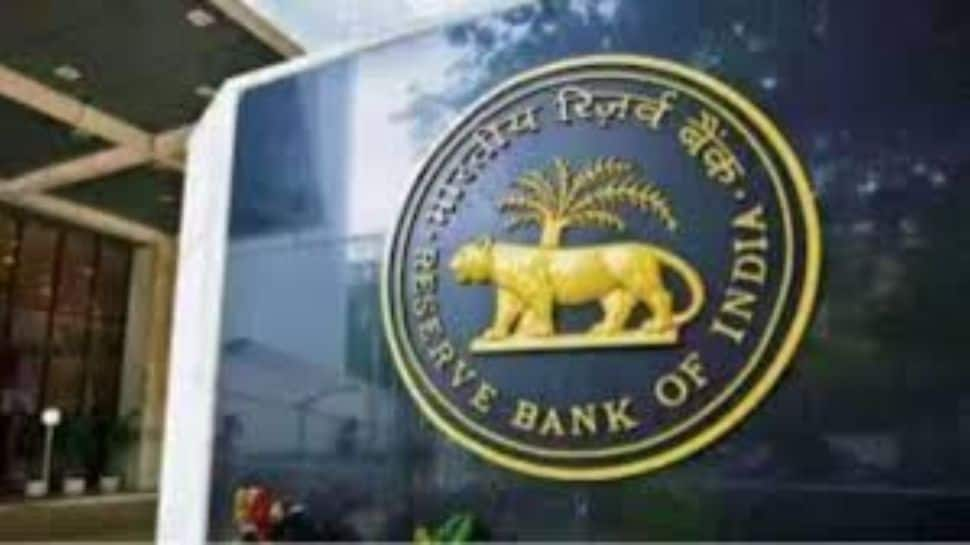Business
New contributory pension scheme unveiled with 10:12 employee-govt share | The Express Tribune

ISLAMABAD:
The federal government has implemented a new Contributory Pension Fund Scheme as the employees will now contribute 10 per cent of their salaries toward their pensions, making them eligible to receive a 12 per cent contribution from the national exchequer.
The Federal Government Defined Contribution (FGDC) Pension Fund Scheme Rules 2024 have been issued by the Finance Ministry’s Regulation Department under the Public Finance Management Act, 2019. The new scheme will be regulated in accordance with the Voluntary Pension System Rules, 2005, and the Non-Banking Finance Companies and Notified Entities Regulations, 2008.
The rules replace the earlier directive issued in August 2024, which had set the government’s contribution at 20 per cent.
On August 20, 2024, the Finance Ministry had initially announced the introduction of a contributory pension scheme for newly recruited civil servants and armed forces personnel. Under the revised system, civil employees recruited on or after July 1, 2024, including those in civil defense, will be covered, while implementation for armed forces personnel is expected from July 1, 2025, pending formal approval.
To support the new pension structure, the government has allocated Rs10 billion for the 2024–25 budget and Rs4.3 billion for 2025–26.
Sources revealed that the scheme was introduced on the recommendation of the International Monetary Fund (IMF) and the World Bank to address the rising pension liabilities, which the government has termed a serious fiscal risk. The reform will not affect current employees but aims to slow the growth of future pension expenditures.
According to government estimates, federal pension spending is projected to reach Rs1.05 trillion in 2024–25, up 29 per cent from Rs821 billion in 2023–24. Pension liabilities for the armed forces are expected to rise 32 per cent, reaching Rs742 billion in 2025–26 compared to Rs563 billion in 2023–24.
For civil servants, pension allocations have increased by 6.6 per cent to Rs243 billion in the current fiscal year from Rs228 billion last year, reflecting modest savings due to the reforms.
Under the new rules, only authorized pension fund managers will manage the fund. The government, as an employer, will deposit 12 per cent of an employee’s pensionable salary through the Accountant General’s Office, which will also monitor record-keeping and fund transfers.
Employees’ 10 per cent contributions will be automatically deducted from their salaries, and both employee and employer contributions will be transferred to the Employer Pension Fund before salary disbursement.
Employees will not be allowed to withdraw pension funds before retirement. Upon retirement, they may withdraw up to 25 per cent of their accumulated savings, while the remaining amount will stay invested under the Voluntary Pension System Rules, 2002, until they complete 20 years of investment or reach the age of 80, whichever comes first.
Employee payslips will now include detailed pension contribution information, listing both the employee’s and employer’s shares along with the total accumulated balance. The Finance Ministry will allocate an annual budget for the government’s share and sign contracts only with pension fund managers that support electronic fund transfers. The agreements will also require insurance coverage in cases of death or disability, to be provided through the designated fund managers.
To supervise the scheme’s implementation, the Finance Ministry will establish a Non-Banking Finance Company (NBFC), which will initially operate in an interim capacity until formally constituted. Pension benefits in cases of retirement, resignation, dismissal, or early retirement will be determined according to government regulations.
The Contributory Pension Fund Scheme marks a major shift from the traditional defined-benefit model to a defined-contribution system, aiming to enhance financial sustainability and ensure long-term retirement security for future public sector employees.
Business
Angel One 1:10 Stock Split 2026: Broking Stock Fixes Record Date

Last Updated:
Angel One sets Feb 26 as record date for 1:10 stock split. Shareholders will get 10 shares for each held.


Angel One Stock Split 2026
Angel One Stock Split Record Date: Domestic brokerage firm Angel One has fixed February 26 as the record date for its previously approved 1:10 stock split, moving ahead with a proposal cleared by its Board last month.
The company had earlier informed stock exchanges on Jan. 15 that its Board of Directors approved the sub-division of equity shares in a 1:10 ratio.
Board Approval For Share Sub-Division
Under the approved proposal, each fully paid-up equity share with a face value of Rs 10 will be split into 10 fully paid-up equity shares with a face value of Re 1 each.
In its Jan. 15 stock exchange filing, the company stated that the Board had approved the sub-division of one existing equity share of face value Rs 10, fully paid-up, into 10 equity shares of face value Re 1 each, fully paid-up. The move is aimed at increasing the number of outstanding shares and improving liquidity in the counter.
Stock splits typically make shares more affordable for retail investors by reducing the market price per share, although the overall market capitalization of the company remains unchanged.
Feb 26 Fixed As Record Date
In a subsequent filing dated Feb. 18, Angel One confirmed that its executive committee has fixed Thursday, Feb. 26, as the record date to determine eligible shareholders for the stock split.
The record date serves as the cut-off to identify shareholders who will be entitled to receive the additional shares. Investors holding the stock on or before Feb. 26 will qualify for the sub-division benefit.
What The Stock Split Means For Investors
Shareholders will receive 10 equity shares for every one share currently held. While the face value per share will reduce from Rs 10 to Re 1, the total value of an investor’s holdings will remain unchanged, as the split does not alter ownership percentage or overall wealth.
Angel One Q3 FY26: Profit Dips Amid Higher Costs
For the quarter ended Dec. 31, 2025, Angel One reported a 4.5% year-on-year decline in consolidated profit after tax to Rs 269 crore, compared with Rs 281.5 crore in the same quarter last year.
However, total income rose 5.8% to Rs 1,338 crore from Rs 1,264 crore in Q3 FY25. Total expenses increased to Rs 964.2 crore from Rs 876.5 crore, primarily due to higher employee benefit costs, elevated ESOP expenses, and increased operating expenditure.
Check JEE Mains Result 2026 Link Here
February 25, 2026, 07:20 IST
Read More
Business
Households set for lower energy bills amid price cap shake-up

Households are set to learn their energy bills will fall by around 7% from April in a shake-up of costs after the Government promised they will receive an average £150 cut.
Latest predictions suggest Ofgem will reduce the energy price cap by £117 to £1,641 a year for a typical dual fuel household from April 1 when it makes its announcement on Wednesday.
Chancellor Rachel Reeves said in November that £150 would be cut from the average household bill from April by scrapping the Energy Company Obligation scheme introduced by the Tories in government.
Customers have been warned not to expect a straight £150 discount on their bills, and that the cut will depend on the size and type of household and how much energy it uses.
The reduction is expected to be primarily applied through a lower price per unit of electricity used, with households advised to look out for information from their supplier explaining this after the price cap announcement.
Cornwall Insight said the changes will reduce the cap by about £145 a year once VAT and pricing allowances within the cap methodology are taken into account.
It added that increases in charges associated with the operation and maintenance of Britain’s energy networks have offset part of the savings.
Wholesale prices had also risen slightly since its last forecast in December, with the cost of gas particularly volatile due to “geopolitical factors”.
Looking further ahead, Cornwall said wholesale costs were still lower than when Ofgem set the January cap level and it expected the cap to remain “relatively steady” throughout 2026, “with only a small rise forecast in July”.
Ned Hammond, deputy director of customer policy at Energy UK, which represents firms, said: “At a time when many households are struggling with their bills, action taken by the Government to provide a considerable discount on energy bills is hugely welcome.
“While the saving will be £150 for the average household, it is important to note that the discount is applied to the unit rate.
“Therefore, households will experience significantly different savings depending on their energy consumption, some much higher and others substantially lower than £150.
“In addition, other moving parts, such as network charges and wholesale costs, mean energy bills will not necessarily fall in line with the saving provided.
“Indeed, the price cap is projected to drop by around £115 from April 1.”
Which? energy editor Emily Seymour said: “Households can expect a significant cut to their energy bills in April, which will come as a relief to millions of people struggling with cost-of-living pressures.
“The bulk of this change is expected to be applied to your electricity price per unit, so your exact savings will depend on your usage; look out for communications from your energy provider in the coming weeks to see how it will affect your bills.”
Simon Francis, co-ordinator of the End Fuel Poverty Coalition, urged households to note the changes in unit costs and standing charges, rather than focus on the headline “average energy bill”.
He said: “We know that energy bills can be confusing and trying to decide when to switch tariffs or change supplier is a big decision which can overwhelm people.
“As well as setting the price cap, Ofgem should play a greater role in ensuring that the tariffs reaching the market are fair and don’t discriminate against specific customer groups.
“Sadly the responsibility currently falls to households to pay careful attention to any changes in their unit costs and standing charges.”
Business
Lucid widely misses earnings expectations, forecasts continued EV growth in 2026

A Lucid Gravity coming off the line at the company’s factory in Casa Grande, Arizona.
Lucid Group reported mixed fourth-quarter results Tuesday as the electric vehicle maker continues to face challenging market conditions and internal struggles.
The company widely missed Wall Street’s quarterly earnings expectations, while beating average revenue estimates by roughly 12%. It also revised its 2025 production results due to internal validation issues, but guided for a notable increase in vehicle production this year.
Here’s how the company performed in the fourth quarter compared with average estimates compiled by LSEG:
- Loss per share: $3.62 vs. a loss of $2.62 cents expected
- Revenue: $523 million vs. $468 million expected
Lucid’s results come days after the company laid off 12% of its U.S. salaried workforce in an effort to streamline operations and “operate with greater efficiency and deliver on our commitments to gross margin improvement and long term growth,” according to a statement from the company.
Interim Lucid CEO Marc Winterhoff described the cuts Tuesday to CNBC as a needed realignment of the company’s workforce amid broader market and economic concerns as well as needed gains in efficiency.
“We are adjusting and going to a level where we think we want to be and need to be,” he said. “But it’s nothing that will continue in the future.”
For 2026, the company announced a vehicle production target of between 25,000 and 27,000 units. That would mark an increase of roughly 40% to 51% compared with the year-end figures the company released Tuesday.
Lucid said the revision for the year — from 18,378 units to 17,840 units — came as “538 vehicles had not completed certain internal procedures required under its final validation process to be classified as produced.”
The company said the vehicles are expected to be completed this year, with the change not affecting its previously reported financial results.
Winterhoff described the expected growth as “healthy,” but not “outrageous” given the current slowdown in overall vehicle sales, including EVs.
“Our initial plans were higher, but we wanted to really be conservative and make sure that we are hitting the numbers that we are projecting,” he told CNBC.
Lucid is expected to begin production of a new, less expensive midsize vehicle at the end of this year, but Winterhoff said it will not be material to its 2026 production plans. He said the automaker’s Gravity SUV is expected to account for the majority of its production and sales this year, followed by the Air sedan. The company also plans to launch its first Lucid robotaxis with previously announced partners.
Winterhoff said the company’s main priorities this year are achieving its production target, growing sales, continuing efficiency gains and preparing for production of the midsize vehicle and robotaxis.
“We really want to make sure that we [are] on our path to profitability, make sure that we’re not spending money that we don’t have to. That’s very, very important,” he told CNBC.
Lucid has yet to say when the company expects to be profitable. It is scheduled to host an investor day on March 12 in New York.
Lucid said it ended last year with approximately $4.6 billion in total liquidity, which Lucid CFO Taoufiq Boussaid said was “strong” and would provide flexibility “to execute near-term objectives while investing in future growth.”
Lucid reported a net loss of $2.7 billion in 2025, in line with a $2.71 billion loss a year earlier. That includes more than doubling its year-over-year losses during the fourth quarter to $814 million. It reported a loss of $12.09 per share for the year.
The company’s 2025 revenue was up 68% to $1.35 billion, including more than doubling year-over-year results during the fourth quarter.
-

 Entertainment1 week ago
Entertainment1 week agoQueen Camilla reveals her sister’s connection to Princess Diana
-

 Tech1 week ago
Tech1 week agoRakuten Mobile proposal selected for Jaxa space strategy | Computer Weekly
-

 Politics1 week ago
Politics1 week agoRamadan moon sighted in Saudi Arabia, other Gulf countries
-

 Entertainment1 week ago
Entertainment1 week agoRobert Duvall, known for his roles in "The Godfather" and "Apocalypse Now," dies at 95
-

 Politics1 week ago
Politics1 week agoTarique Rahman Takes Oath as Bangladesh’s Prime Minister Following Decisive BNP Triumph
-

 Business1 week ago
Business1 week agoTax Saving FD: This Simple Investment Can Help You Earn And Save More
-

 Tech1 week ago
Tech1 week agoBusinesses may be caught by government proposals to restrict VPN use | Computer Weekly
-

 Sports1 week ago
Sports1 week agoUsman Tariq backs Babar and Shaheen ahead of do-or-die Namibia clash












